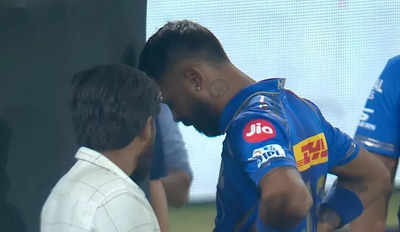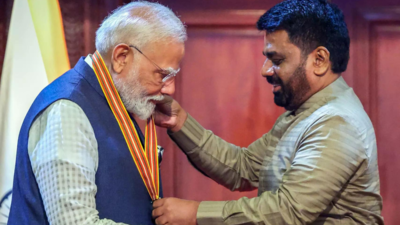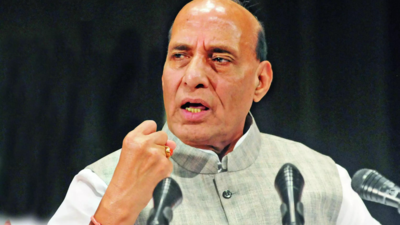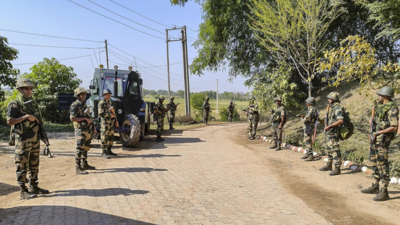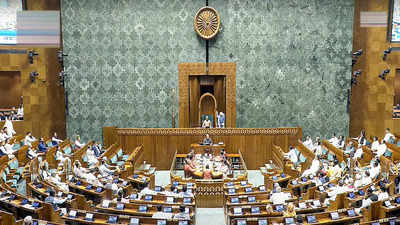Sri Lanka won’t allow its land to be used against India, says President Dissanayake; PM Modi calls it ‘shield of a true friend’ | India News
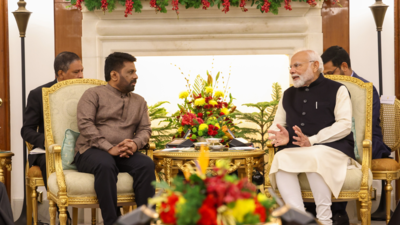
NEW DELHI: Prime Minister Narendra Modi on Saturday welcomed Sri Lankan President Anura Kumara Dissanayake’s assurance that the island nation “will not permit its territory to be used in any manner inimical to the security of India,” calling the gesture a reaffirmation of the deep trust between the two neighbours and a statement that appeared to assuage concerns about China’s growing influence over neighbours.
“Tamil saint Thiruvalluvar said—what could be bigger protection against the enemy if not the shield of a true friend and his friendship?” PM Modi said, adding, “President Anura Kumara Dissanayake had chosen India for his first foreign visit. Today, I am his first foreign guest here in Sri Lanka. It shows the depths of our special relationship. Sri Lanka has a special place in our neighbourhood first policy and mission SAGAR.”
Foreign Secretary Vikram Misri added context to the growing strategic partnership: “The President of Sri Lanka stated very clearly that Sri Lankan territory will not be used or be allowed to be used in any manner that is inimical or detrimental to India’s interests. During discussions today, he said that neither Sri Lanka’s land nor the oceans around it will be allowed to be used in any manner inimical to India’s security.”
He said the remarks set the stage for a milestone development. “This is the background of the signature of the Defence MoU between the two countries for the first time, and the MoU is in itself an umbrella framework document that will make existing defence cooperation initiatives more structured.”
President Dissanayake also acknowledged India’s regional role and sought its support in key bilateral issues. “I reaffirmed Sri Lanka’s stand that it will not permit its territory to be used in any manner inimical to the security of India as well as towards regional stability,” he said. “I requested Prime Minister Modi’s intervention in convening early bilateral technical discussions pertaining to Sri Lanka’s claim to the United Nations Commission on the Limits of the Continental Shelf for the establishment of the outer limits of the Continental Shelf beyond the Exclusive Economic Zone.”
He also highlighted the countries’ collaboration in technology and digital transformation. “Sri Lanka recognizes the importance of developing a digital economy to drive growth, innovation and efficiency. Furthering this policy initiative, Prime Minister Modi and I discussed possible collaboration in digitalization in multiple domains,” he said. “I thank the Government of India for the financial grant of Indian Rupees 300 crores to implement Sri Lanka’s unique Digital Identity Project.”
China’s growing influence
Chinese investments and infrastructure projects in Sri Lanka to develop its economy have raised concerns ranging from sovereignty and security issues.
Beijing’s control of the Hambantota Port—secured on a 99-year lease after Colombo defaulted on loan repayments—has enabled Chinese surveillance vessels, such as the Yuan Wang 5, to operate near India’s southern coast. Despite protests from New Delhi in 2022, Sri Lanka allowed Chinese ships to dock at Hambantota for “replenishment,” a practice that continues.
China has also pledged a record $3.7 billion investment in Sri Lanka following President Dissanayake’s recent visit to Beijing. The funds will be used to build a new oil refinery at Hambantota as part of an upgraded Belt and Road Initiative (BRI) agreement.
Why PM Modi’s visit to Sri Lanka matters now
PM Modi’s visit to Sri Lanka is more than a goodwill gesture—it marks a pivotal step in deepening defence and strategic cooperation between the two nations at a time of growing Chinese influence in the Indian Ocean region.
The visit is expected to culminate in the signing of a key defence cooperation agreement, signalling a reset in India-Sri Lanka military ties that have remained cautious since the withdrawal of the Indian Peace Keeping Force (IPKF) from the island nearly 35 years ago.
PM Modi arrived in Colombo on Friday evening and was welcomed at the Bandaranaike International Airport by five senior Sri Lankan ministers, including Foreign Minister Vijitha Herath, Health Minister Nalinda Jayatissa, and Fisheries Minister Ramalingam Chandrasekar.
On Saturday morning, he received a ceremonial welcome at Independence Square by President Dissanayake, underlining the importance both nations attach to their long-standing ties.
